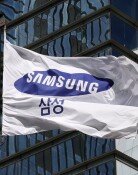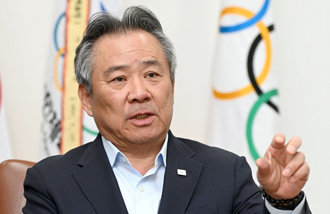[Editorial] EU Growing Closer to Korea
Korea and the European Union are close to concluding a free trade agreement that they have been negotiating for 26 months. President Lee Myung-bak and Swedish Prime Minister Fredrik Reinfeldt, whose country holds the six-month rotating presidency of the EU, are expected to announce the deal today after their summit in Stockholm. The EU is not a single country, but is the worlds single biggest economic bloc with a population of 500 million and annual gross domestic product of 14 trillion U.S. dollars.
The effectuation of the deal will provide Korea with access to the enormous market on a nearly equal footing as EU member countries. The EU can also secure a beachhead to Japan and China in addition to the Korean market. Seoul and Brussels have also shown their leadership in promoting free trade at a time when global protectionism is being revived amid the economic crisis that began last year. Korea is about to become the first Asian country to sign a free trade deal with the worlds largest and second-largest economic blocs the United States and the EU. The two agreements will likely boost Koreas international credibility and trade competitiveness. In addition, Seoul can expect to use the deals to its advantage in free trade negotiations with Tokyo and Beijing.
The EU is a huge market, with trade with Korea last year reaching 98.4 billion U.S. dollars. The EU is Koreas second-biggest trading partner after China, whose trade with Korea was 168.3 billion dollars. The EU is also Koreas biggest foreign direct investor, with 51.1 billion dollars between 1962 and the end of last year, more than the 40.3 billion dollars in U.S. investment in Korea and 21.9 billion dollars by Japan. The Korea Institute for International Economic Policy projects that the Korea-EU deal will likely increase Koreas GDP more than two percent over the short term and 3.08 percent over the long term.
Thorough preparation is necessary if Korea is to fully benefit from the deal. The Korean government should get ready for parliamentary ratification of the deal and legislation of related laws, learning lessons from the delayed ratification of the pact with the U.S. It goes without saying that Seoul must waste no time in taking measures to protect vulnerable industries.
While the deal with the EU is as significant as that with the U.S., the Korean public seem disinterested in it. This proves that the strong protests against the agreement with the U.S. were politically motivated actions orchestrated by anti-American groups that had nothing to do with economics. People with a sound mind should support the governments strategy to maximize national interests.
Headline News
- ‘Literature class with Han Kang’s writing for 10 years,’ says Oxford professor
- Gold price reaches new record high
- Moon Da-hye appears at police after drunk driving accident
- N. Korea redefines S. Korea as ‘hostile state’ in revised constitution
- Samsung develops graphic DRAM with industry-leading capacity and speed







